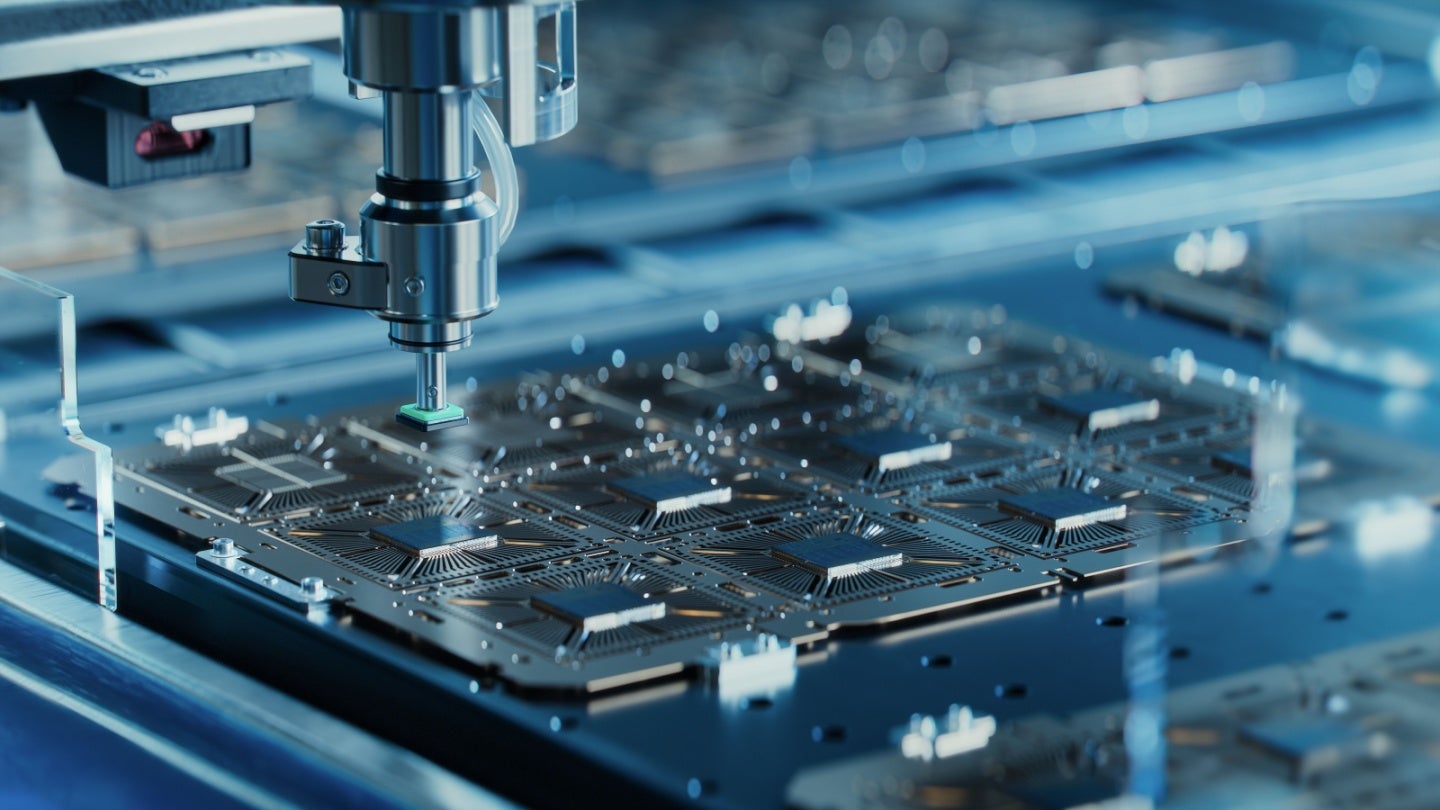
The rush to roll out AI products is driving a semiconductor race, drastically changing the industry, according to research and analysis company GlobalData.
In its 2024 Innovation Radar report, GlobalData examined over 50 use cases of advanced chip technology across a variety of industries including telecom, automotive and technology.

Access deeper industry intelligence
Experience unmatched clarity with a single platform that combines unique data, AI, and human expertise.
This includes a collaboration between Intel and Zeekr, an electric vehicle company, to create automotive chips specifically for a range of in-vehicle AI applications.
As AI becomes widespread throughout industry, the semiconductor industry will continue to see fierce competition ramping up.
GlobalData’s practice head of disruptive tech Kiran Raj stated that AI’s proliferation had led to semiconductor manufacturers competing to meet its high compute needs.
“Simultaneously, leading tech giants invested in AI are intensifying their efforts in developing proprietary chip capabilities to decrease dependency on external platforms to power their AI initiatives,” he said.

US Tariffs are shifting - will you react or anticipate?
Don’t let policy changes catch you off guard. Stay proactive with real-time data and expert analysis.
By GlobalDataLast week Meta, Google and Intel all launched AI-specific chips.
In its announcement, Intel directly compared the performance of its new Gaudi 3 chip to semiconductor industry leader Nvidia.
Intel stated that its Gaudi 3 was more energy efficient than Nvidia’s H100 chip and stated that Gaudi 3 can be used to train large language models up to 50% faster than H100.
Associate project manager for disruptive tech at GlobalData, Saurabh Daga, stated that semiconductors were the backbone of many major forefront technologies.
“They empower autonomous vehicles to navigate complex environments and revolutionize healthcare by decoding intricate medical data for precise diagnoses,” he said.
“In essence, these chips not only optimise processes but also redefine standards of efficiency and accuracy, highlighting their key role in propelling us into the era of AI-driven innovation,” Daga stated.
Daga concluded that tech giants could no longer rely upon continuing to develop their software without making their own advances in hardware.
“Therefore, despite integration challenges and supply chain issues, semiconductor chips hold immense potential in propelling diverse industries towards an intelligent, efficient, and innovative future,” he said.







